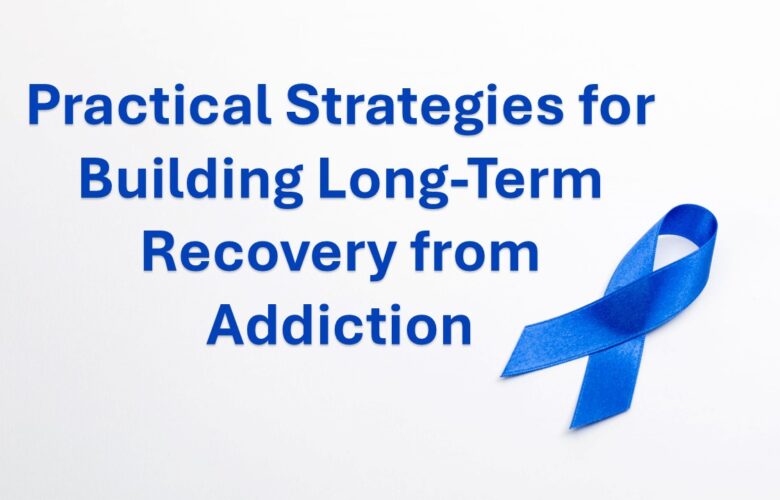Key Takeaways
- For long-term healing to be successful, a solid foundation must be built.
- Building a supportive environment can vastly influence recovery outcomes.
- Maintaining mental and physical wellness boosts resilience against relapse.
- Ongoing education and awareness aid in personal growth and development.
Long-term recovery requires practical strategies like setting achievable goals, maintaining a structured routine, and prioritizing mental and physical health. Resilience is fostered by participating in continuous treatment or peer groups, developing a strong support system, and caring for oneself. These approaches empower individuals to overcome challenges and maintain a balanced, addiction-free life.
The Foundation of Long-Term Recovery
Embracing the challenge of overcoming addiction involves crafting a resilient foundation that prioritizes long-term recovery. In the early stages, professional treatment options such as those offered by Heartwood Recovery provide indispensable support. These programs help participants understand the underlying mechanisms of their addiction, equipping them with critical skills and insights. Establishing personal goals further aids individuals in developing a sense of purpose and direction. By setting realistic and attainable milestones, those in recovery begin to redefine their identities beyond addiction, embracing a path filled with hope and possibilities.
Building a Supportive Environment
The company’s nurturing network plays a pivotal role in sustaining recovery. Loved ones, including family and friends, provide essential encouragement and reassurance. Their presence can make a tremendous difference in moments of doubt or hardship. Beyond family, connecting with individuals experiencing similar journeys offers an added support layer. Participating in support groups or community programs, such as Alcoholics Anonymous, fosters a sense of unity—a reminder that the battle for sobriety is a shared one. In these environments, bonds form over shared experiences, offering camaraderie and accountability, which are vital components in preventing relapse.

Lifestyle Adjustments for Sustained Recovery
Transitioning to a lifestyle that supports recovery requires adopting habits that nurture both body and mind. Emphasizing nutrition and physical fitness contributes significantly to overall well-being, elevating mood and enhancing self-esteem. Regular exercise and a nutritious, well-balanced diet can help prevent the depressive or anxious feelings that frequently accompany recovery. Additionally, consistent self-care practices become the cornerstone of sustained recovery. Simple routines, like meditating, engaging in hobbies, or spending time in nature, enrich one’s life, providing solace and peace amidst the ever-evolving recovery journey.
Embracing Mindfulness and Mental Wellness
The power of mindfulness lies in its ability to anchor individuals in the present, warding off distractions that may lead to relapse. Meditation and yoga teach valuable skills for clearing the mind and fostering a calm, focused state. Regularly practicing mindfulness can develop a non-judgmental awareness of thoughts and feelings, reducing the impact of potential triggers. Therapy and counseling remain indispensable avenues for mental wellness; they support personal growth by helping to demystify complex emotions and behaviors. The ongoing benefits of integrating mindfulness into daily life bolster one’s capacity to remain sober, as highlighted in resources about the benefits of mindfulness.
Continuing Education and Personal Development
Education and personal development are powerful tools in transforming recovery from a sobriety journey into an opportunity for profound personal growth. People can stay focused and oriented by partaking in mentally taxing activities, which can replace past addictive tendencies. Acquiring new skills or interests is empowering and inspiring, potentially paving the way toward new career paths previously unconsidered. Through online courses, workshops, or traditional educational pursuits, individuals often discover newfound confidence and motivation, which are integral for building a life that aligns with their aspirations and dreams.
Recognizing Triggers and Managing Cravings
Identifying and managing triggers is an ongoing effort that requires vigilance and self-awareness. Early recognition of circumstances or emotions that provoke cravings allows individuals to implement strategies that prevent relapse. Developing an action plan that includes reaching out to supportive peers, practicing relaxation techniques like deep breathing, or engaging in distracting activities is essential. By reinforcing these strategies, individuals emasculate the hold cravings can have on their lives, gradually diminishing their power over time. Personalized approaches crafted with precision and intention are often the most effective, underscoring the importance of knowing oneself intimately throughout recovery.
Staying Informed: Resources for Ongoing Learning
The recovery landscape is vast, and staying informed is critical to navigating it successfully. Individuals integrate learning into their recovery journey by consistently engaging with informational resources. Books, podcasts, and articles provide insight, helping maintain motivation and inspiration. It’s crucial, however, to rely on authoritative sources that respect the complexity of recovery and avoid misleading or damaging advice. Trusted resources keep individuals grounded, providing information and reassurance that their path is supported by evidence and collective understanding.
Final Thoughts on Long-Term Recovery Success
Achieving long-term recovery is a multifaceted endeavor requiring dedication, resilience, and a supportive network. Adopting integrated strategies that blend personal motivation with community encouragement creates a formidable defense against addiction. By committing to ongoing personal development, continuous learning, and self-awareness, recovery becomes a journey of growth and transformation. The combination of proactive involvement, awareness, and support safeguards people’s journeys along this road, enabling them to lead healthier and more satisfying lives.
